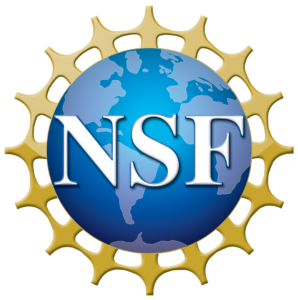
Bridging Quantitative Science with Biological Research: Jumpstarting Computational Systems Biology Research at PVAMU

|
Project Overview: The Historically Black Colleges and Universities Research Infrastructure for Science and Engineering (HBCU-RISE) activity within the Centers of Research Excellence in Science and Technology (CREST) program supports the development of research capabilities at HBCUs that offer doctoral degrees in science and engineering disciplines. HBCU-RISE projects have a direct connection to the long-term plans of the host department(s) and the institutional mission, and plans for expanding institutional research capacity as well as increasing the production of doctoral students in science and engineering. With support from the National Science Foundation, Prairie View A&M University (PVAMU) aims to provide innovative solutions to more effective and efficient drug development by bridging quantitative research with biomedical science. The project aims to 1) jumpstart computational biology research to stimulate students’ interest and enhance the PhD program in Electrical Engineering, 2) improve student enrollment and retention, and 3) attract more minority students to pursue graduate study, especially doctoral degrees. This project is aligned with the mission of the institution and the goals of the Electrical and Computer Engineering (ECE) Department. The proposed activities will support the ECE department in building a strong research program in computational biology, thus achieving the goals of enhancing the PhD program in the ECE department and broadening participation in computational biology at PVAMU. The proposed project will greatly improve African American involvement in cutting edge research that is extremely valuable to the nation. The aim of this project is to study and analyze the dynamic evolution of drug/cell interactions using biomedical big data, including both public domain data and dynamic time series data from systematic drug perturbations experiments. Innovative image processing, machine learning, dynamic modeling and control techniques are proposed to help understand the genetic regulation of cancer cells and the mechanism of action of molecularly targeted agents on gene regulation. Specifically, combining the information from robust image feature extraction using advanced image processing techniques (Thrust 1) with candidate drug targets and the identification of drug treatments identified using a novel network-based computational tool, Evaluation of Differential DependencY (EDDY; Thrust 2). Dynamic modeling and analysis of drug response in critical biological pathways will be carried out in Thrust 3. Equipped with the knowledge extracted from biomedical big data obtained in Thrust 2 and a predictive preclinical model that reveal how biological regulatory networks react when perturbed from time series data in Thrust 3, novel therapeutic interventions will be designed in Thrust 4 using advanced control theory. Findings from this study will provide innovative solutions to more effective and efficient drug development by bridging quantitative research with biomedical science. This project will be conducted in collaboration with the TEES-AgriLife Center for Bioinformatics and Genomics Systems Engineering (CBGSE) at Texas A&M University and the Translational Genomic Research Institute (TGen). The knowledge gained from this project will be disseminated broadly to a community of scientists and engineers. Program Start Date: September 1, 2017 |
|
| Supported by NSF | |
Any opinions, findings, and conclusions or recommendations expressed in this material are those of the authors and do not necessarily reflect the views of the National Science Foundation. |
|
|
| Supported by NSF | |
Any opinions, findings, and conclusions or recommendations expressed in this material are those of the authors and do not necessarily reflect the views of the National Science Foundation |
|
Computing Facility
-
-
- 4 x NVIDIA DGX-1 cluster equipped with
-
-
-
-
- 2x Intel Xeon E5-2698 v3 (16 core, Haswell-EP)
- 8x NVIDIA Tesla P100 (3584 CUDA Cores)
- 512GB DDR4-2133 (LRDIMM)
- 128GB HBM2 (8x 16GB)
- 4x Samsung PM863 1.92TB SSDs
- 4x Samsung PM863 1.92TB SSDs
- 4x Samsung PM863 1.92TB SSDs
-
-
-
-
- 4 x Workstations
-
Next Generation Sequencing Facility
The Next Gen Sequencing Center offers Illumina sequencing by synthesis. It is equipped to isolate, quantitate, evaluate quality of nucleic acid preparations and prepare libraries for sequencing using a workflow that minimizes contamination. The Illumina sequencer is covered under an annually renewed PROD Care NSQ 550 Comprehensive service contract through Illumina. It guarantees an average 3 business day on-site response time by a field engineer, full coverage on parts and labor, and an annual preventative maintenance visit. The center also offers microarray processing and analysis. We will train, support, and provide fee-for-service work, access to ancillary equipment for sample preparation and bioinformatics support to Center investigators and the wider scientific community.
-
- Illumina NextSeq 550 . Features include: reads up to 150 bp long; low cost/base; fast turn-around times; mid- or high-output modes (150M or 400M clusters/sample, respectively).
- Agilent 2100 Bioanalyzer to analyze the quality of protein, DNA and RNA.
- Nanodrop and Qubit 4 to determine the concentration of nucleic acids.
- Real Time PCR for superior accuracy of quantification
I. Invited Lectures:
-
-
- Nov. 9, 2022, Speaker: Stephen Chan, MD/PhD/FAHA, Professor of Department of Medicine, Vitalant Chair of Vacular Medicine, Director, Vascular Medicine Institute, School of Medicine, University of Pittsburgh; Title: “Integrated multi-omic analyses identify genetic causes of endothelial inflammation in pulmonary hypertension”
-
-
-
- Jan 26, 2022; Speaker: Byung-Jun Yoon, Ph.D., Associate Professor, Department of Electrical and Computer Engineering, College of Engineering, Texas A&M University; Title: “Machine Learning for Computational Network Biology”
-
-
-
- Feb 9, 2022; Speaker: Seungchan Kim, Ph.D., Chief Scientist and Executive Professor, Director, CCSB, Electrical and Computer Engineering Department, PVAMU; Title: “Computational Network Biology Enabled by Large-Scale Transcriptomic Data”
-
-
-
- Mar 9, 2022; Speaker: Anna Joy, Ph.D., Research Associate Professor, Director, Genomics Laboratory, CCSB, PVAMU; Title: “Biomarker development for personalized immunotherapy”
-
-
-
- Apr 20, 2022; Speaker: Archana Ramesh, Ph.D., Principal Data Science Manager, Microsoft; Title: “Improving Windows Customer Experiences via Data Science & ML”
-
-
-
- May 18, 2022; Speaker: Lucy Nwosu, Ph.D. student and Graduate Research Assistant, CCSB, PVAMU; Title: “Calibrated Bagging Deep Learning for Image Semantic Segmentation: A Case Study on COVID-19 Chest X-ray Image”
-
-
-
- Title: Feeding the ten billion: from green revolution to gene revolution, by Tesfamichael Kebrom, Ph.D., Research Scientist, Prairie View A&M University, on Wed., Sept. 11, 2019
-
-
-
- Title: Molecular insights into inflammatory breast cancer (IBC) aggressiveness and metastasis, by Bisrat G Debeb, DVM, Ph.D., Assistant Professor, M.D. Anderson Cancer Center, on Wed., Sept. 25, 2019
-
-
-
- Title: Brain, sex, synapses and neurological diseases – a transcriptomic story, by Dumitru Iacobas, Ph.D., Research Professor, Prairie View A&M University, on Wed., Oct. 9, 2019
-
-
-
- Title: Molecular Subtypes in Muscle Invasive Bladder Cancer, by Woonyoung Choi, Ph.D., Assistant Professor, Johns Hopkins University, on Wed., Oct. 23, 2019
-
-
-
- Title: Mechanistic Protein Modeling for Rational Drug Discovery, by Yang Shen, Ph.D., Assistant Professor, Texas A&M University, on Thur., Nov. 7, 2019
-
-
-
- Title: Discovery of Glioblastoma immune subtypes to improve immunotherapy, Anna Joy, Ph.D., Research Associate Professor, Prairie View A&M University, on Wed., Dec. 11, 2019
-
-
-
- Title: Validation of the Gene Master Regulators Theory for Cancer Gene Therapy, by Dr. Iacobas, on Feb. 13, 2019
-
-
-
- Title: Differential, tissue-specific effects of germline mutations on epithelial stem cell development, by Dr. Victoria Mgbemena, on Feb. 27, 2019
-
-
-
- Title: Cancer Research – A Physicist’s View, by Dr. Kumar, on Mar. 27, 2019.
-
-
-
- Title: Neural Networks Based Feature Selection for Genetic Data Analysis, by Dr. X. Dong, on April. 10, 2019.
-
-
-
- Title: Gene Expression in Developing Goat Testes: Identification of a Caprine Spermatogenesis Transcriptome, by Dr. Lewis, on April. 24, 2019.
-
-
-
- Title: Single Cell Genomics at the Center for Computational Systems Biology, by Dr. Anna Joy, on May 8, 2019.
-
-
-
- Title: Radiation Dosimetry Measurements Onboard Air and Space Craft for Human Safety Programs and Cancer Epidemiology Studies, by Dr. Brad “Buddy” Gersey, on May 22, 2019.
-
-
-
- ” The Gene Master Regulators Approach of the Personalized Cancer Gene Therapy ” by Dr. Dumitru Andrei Iacobas, Associate Professor of Pathology, Director of Systems Biology Core, New York Medical College, on August 24 (Thursday), 2017.
-
-
-
- ” Predicting interacting peptides in protein complexes using Evolutionary and Structural Information ” by Bernard Fongang, Ph.D., Research Scientist, UTMB-Galveston, on March 2 (Friday), 2018.
-
-
-
- ” Systematic computational network-based analysis to predict subnetworks/key genes associated with pathogenicity/fumonisin or defense response in maize-F. verticillioides interaction ” by Dr. Jimmy Man Kim, Postdoctoral Research Associate, Plant Pathology and Microbiology, Texas A&M University, on March 9 (Friday), 2018.
-
-
-
- ” Deep Learning for Data Analysis” by Xishuang Dong, Ph.D., Postdoctoral Researcher, CREDIT Center, PVAMU, on March 19 (Monday), 2018.
-
-
-
- ” Exascale Computing Project ” by Professor Barbara Chapman, Stony Brook University, on March 29 (Thursday), 2018.
-
-
-
- ” Emerging Topics in Genome Sequencing and Analysis ” by Dr. Chun-Chi Chen, Postdoctoral Researcher, CBGSE, Texas A&M University, on April 3 (Tuesday), 2018.
-
-
-
- ” Potential clinical applications for Glioblastoma subtypes derived from AKT pathway based clustering “, by Dr. Anna Joy, Research Assistant Professor at Barrow Neurological Institute, Phoenix, AZ, on September 14 (Thursday), 2017.
-
II. Training:
-
-
- Lab Training of “TruSeq Stranded Total RNA Sample Preparation”, Provided by Illumina Inc. in March 2019.
-
-
-
- ” Illumina NextSeq 550 Training ” by Imani Bethel, Field Applications Scientist, illumina, Inc., on April 5-6 (Thursday-Friday), 2018.
-
| Supported by NSF |
Any opinions, findings, and conclusions or recommendations expressed in this material are those of the authors and do not necessarily reflect the views of the National Science Foundation |
Dr. Lijun QianDepartment of Electrical & Computer Engineering
|
|
| Supported by NSF | |
Any opinions, findings, and conclusions or recommendations expressed in this material are those of the authors and do not necessarily reflect the views of the National Science Foundation |